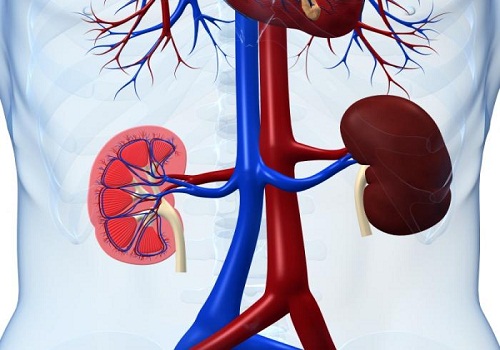He said factors that predispose people to the disorder are common in the country with hypertension and diabetes topping the list. High incidence “In Nigeria it is estimated that every year the incidence of kidney disease is 100 per 1,000,000 population. The number of new cases of kidney failure we see every year in the population of 170 million is 17,000. If you put all the patients on dialysis across the nation, they are less than 2,000, if 2,000 people are only on dialysis and 17,000 need it and when you don’t get it you will die. You can imagine the number of people dying because they don’t have access to dialysis.” The Consultant Nephrologist, who is also the Clinical Director, St. Nicholas Hospital, Lagos, lamented that despite the huge number of Nigerians with kidney disorders, the country is faced with dearth of kidney disease experts.
“In Nigeria, the ratio of Nephrologists to patients is 1 to 1, 000,000.” He urged the Federal government to emulate the US government that spends about $30 billion dollars every year to look after patients with kidney failure, while calling for prioritisation of treatment of kidney disorders by extending the period of dialysis under the National Health Insurance Scheme, NHIS, from six sessions (two weeks) to 36 sessions (three months). With the theme, “Act Early to Prevent It” Bamgboye said the focus on this year’s World Kidney Day is early detection in school children that also develop high blood pressure. About 600 children are being screened for hypertension, diabetes, protein in urine, height and weight as well as genotype as studies show that Sickle Cell Disorder can lead to kidney problems.
Bamgboye called on all stakeholders to act collaboratively to address the challenges for patients living with kidney disease in the country. Schools that benefited from the free screening include Holy Cross Cathedral Primary School, Kings College, Lagos and Holyfield Junior Secondary, Maryland. Also speaking, a Consultant Internist, at St. Nicholas Hospital, Dr. Biodun Osibamowo said a total of 10 cases are seen every week in the hospital. Urging the establishment of affordable treatment centres, he described the national incidence of kidney failure of about 67 percent in Nigeria as a medical emergency. “Parents should take their children to hospital immediately any abnormality is noticed, rather than buying local herbs or taking them to native doctors. It has been discovered that local herbs are a major cause of kidney disease in Nigeria,” he warned.
Source: Medical World Nigeria

 Lesss than 2,000 have access to dialysis, a Ratio of 1 Nephrologist to 1m persons ON this year’s World Kidney Day, experts have raised alarm over rising incidences of kidney disease among Nigerians, saying,
Lesss than 2,000 have access to dialysis, a Ratio of 1 Nephrologist to 1m persons ON this year’s World Kidney Day, experts have raised alarm over rising incidences of kidney disease among Nigerians, saying,




